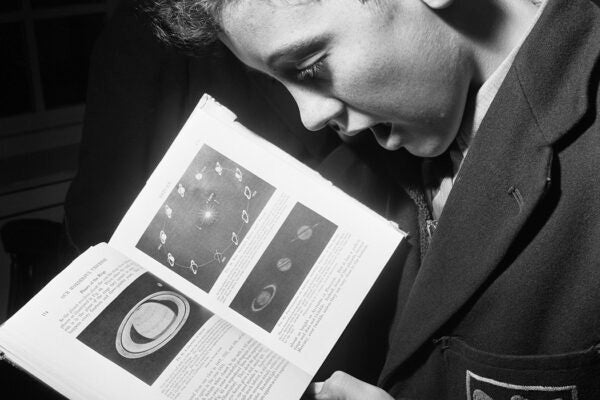Long before Dr. Phil, or even Dr. Joyce Brothers, at the very dawn of mass media, psychologists took to the radio to try to mold Americans’ minds. Psychologist Peter J. Behrens explores their grand ambitions, and the way they fell short of achieving them.
In the wake of World War I, Behrens writes, Americans were excited about the advance of science, and that excitement extended to psychology. Rational approaches to childrearing and “mental hygiene” seemed to hold the potential for greater human flourishing and happiness.
As radio programs went national and most households bought receivers in the 1920s and ‘30s, news, drama, and humor programs united the nation with its first real pop culture. For psychologists, this was a way to inform the public, including immigrants new to American ways, about appropriate mental and social functioning.
One early psychology program was a weekly fifteen-minute discussion of parenting broadcast by NBC alongside “baseball scores” and “markets and weather.” Female speakers discussed best practices for child development based on the psychological research of the day.
This and many of the other early psychology programs were clearly aimed at parents—particularly mothers—and focused on children’s needs. Looking at psychology programming in New York from 1929 through 1939, Behrens mostly found programs with titles like “Your Child,” “Advice to Mothers,” and “Child Study Talk.” (One outlier was a program simply titled “Phrenology.”)
During the Depression, as unemployment rose, radio stations expanded their educational focus. The National Advisory Council on Education in Radio, created in 1930, sponsored radio lectures on topics including economics and psychology. Prominent scholars, including John Dewey and John B. Watson, lectured the radio audience on topics that included child development, but also subjects like animal behavior and industrial psychology.
Behrens writes that the most ambitious radio psychologist was probably Joseph Jastrow. He wrote books aimed at the general public with titles like “Piloting your Life” and “Effective Thinking.” In 1932, he presented a series of radio address on vocational guidance aimed at high school seniors. Throughout the 1930s, he also offered talks on a broad range of big topics like “Restoring Social Sanity,” “Is Romance Useful?” and “Zest in Living.”
Weekly Digest
Behrens found only one surviving recording of a radio lecture by Jastrow, in which the psychologist “speaks in a friendly, articulate tone that is almost charming, if not paternalistic.” In the show, Jastrow argues for consistent truth-telling, making references to “Shakespeare, Henry James, Gilbert and Sullivan, Eugene O’Neill, Sigmund Freud, Mark Twain, and the Ten Commandments.”
A 1935 report, “The Psychology of Radio,” sought to map out “the new mental world created by radio” in the hopes that psychologists could shape American society. But ultimately, psychological programming—and educational radio in general—remained a small part of the media landscape, at least until call-in advice shows revamped the format for commercial stations.







